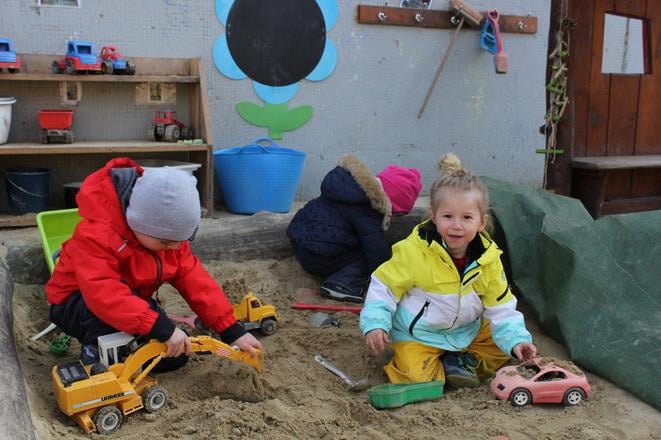Lockdown! Virtual School! What a time we are going through! 24/7 with no break, no time for ourselves, desperately trying to come up with imaginative ways to entertain our children, to keep them busy, to keep them happy, what shall we do next? But whose perception is this and whose eyes are we looking through?
What we perceive as adults is completely different to what children perceive and what children do to learn is a world apart from our perceptions. For example, if I showed you a group of items - cardboard rolls, boxes, yoghurt pots, tape – us adults see them as recyclable materials, things we do not need anymore. To a child, it is an opportunity to learn and investigate. The child will use the boxes for transporting things from one place to another; they will fill the boxes with different sized items or use them for treasure. They may construct a house or a rocket by working out how to fit them together.
Let me introduce a second set of items – measuring jugs, graded containers, spoons, flour, water, and food colouring. We adults use these items for a specific purpose such as cooking and baking. For a child, these items are a world of opportunity. They may fill the containers with water and flour using different sized spoons to experiment with; they will transfer one ingredient from one container to another and mix them to see what happens next.
All these things help children to initiate their own play and learning. They will choose what interests them unconsciously and in that moment. They are exploring concepts such as construction, shape, measure, capacity, transportation; all initiated by themselves. We as adults, have enabled this by providing these items within their environment.
Children are born to learn
Child-initiated play is a style of play where children choose how, where, and what they wish to play with. It is all about what interests them at that moment, and then they need to absorb through movement to enhance their skills and knowledge for them to make sense of the world around them. Children are born to learn, and they absorb information through play.
Early childhood and neuroscience go hand in hand because this is when the brain is most sensitive to environmental influences. Brain development is greatly dependent on environmental input from experiences and interactions, and this can be through play, exploration, communicating with others and enjoying secure and responsive relationships. It offers opportunities for repetition and to master skills which strengthens brain development. When a child initiates its’ own play, the brain becomes ‘lit up’ showing stimulation and excitement of learning something new.
At The British International School, we provide a stimulating and enabling environment to allow our children to reach their full potential through child-initiated play. We ensure our setting is prepared to support the needs of all our children. We do this through observation, following the child’s interests and providing resources, inside and outside, that will maximise learning. Our staff can facilitate learning if needed to fill the gap between what a child knows and what they do not know yet. We do this by planning in the moment.
Take a step back
At home you too can facilitate learning by observing your child. You might wish to enhance their play with simple resources such as recyclable items, different sized spoons and containers, material, old clothes, fiction, and non-fiction books, and though you might be their favourite playmate you do not always have to be there. Children will find out for themselves.
‘Play’ is the child’s work and through this work they find out how things work in the world around them. By allowing them to ‘master’ their environment, you are helping them to increase their self-esteem, self-confidence, social and emotional skills, creative and critical thinking allowing them to problem solve and more importantly ask questions.
Remember, having extended periods of uninterrupted time to play inside and outside is integral for child development. Let them climb, investigate, take risks, and explore!
We adults do tend to look at children through our eyes and we put adult expectations on them. Remember to stop, observe, take a step back and think what it is the child is trying to master. There is a process in everything they do, and we are there to help them reach their full potential.
Sarah Thorpe is Phase Leader for Nursery and Reception at The British International School Bratislava.
Author: Sarah Thorpe

 Child-initiated play is a style of play where children choose how, where, and what they wish to play with. (source: Courtesy of The British International School Bratislava)
Child-initiated play is a style of play where children choose how, where, and what they wish to play with. (source: Courtesy of The British International School Bratislava)